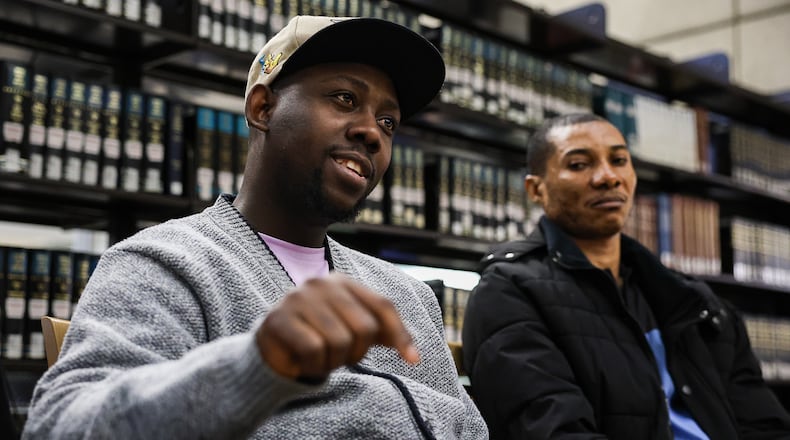“It was like having a big cup of cold water dumped on the back of your head, it was something I did not expect,” Joseph said. “At first I said ‘My God, what am I going to do?’ because the first thing you see is that it says you need to leave in seven days.”
Joseph was one of several Haitian immigrants who recently spoke with the Dayton Daily News about their ongoing plight to remain legal residents in the US. The Department of Homeland Security previously announced that the parole program would end on April 24, and the Haitians, Cubans, Nicaraguans, and Venezuelans protected by it would need to either correct their status or self-deport. A federal lawsuit has since halted the April 24 end of parole programs.
Like so many others across the country, Joseph entered lawfully and has committed no crimes while in the states. The Port-au-Prince native works hard, studies at Sinclair, and looks forward to the day he can open his own business.
“Self-deportation for us is virtually impossible. Sometimes we want to go back, a few of us would love to,” Joseph said. “But we can’t live in our country the way we live here. The people waiting for us there have guns. We have 10,000 armed policemen and they cannot protect themselves. How are we, regular people, going to oppose them?”
Dayton Daily News could not verify the authenticity of the email Joseph received. However, it resembles those that have been reported by others in similar circumstances across the country.
Maria Steffee, Board Member of the Ukrainian Society of Greater Dayton, described the barrage of messages and misinformation she has seen and how it has affected Ohio’s burgeoning Ukrainian community.
“I think it’s important to keep a level-head and reasonable perspective,” Steffee said. “I tell people who are here and who would like to remain here to stay hopeful and keep observing the situation. It’s important for all of us I think not to give in to the worst of our fears. There is a huge rumor mill going around it suggesting they do things a certain way or prepare to leave.”
Steffee’s comments highlight the sense of confusion among many immigrant communities in the Miami Valley. Refugees are among the most vulnerable victims of misinformation. Steffee advised members of the public to support immigrant causes and their community organizations.
“For me personally and for our organization, it’s important to band together and try to help causes that matter to us,” Steffee said. “We cannot stop the war, we cannot change the political situation in any of the countries, we cannot really affect what certain powers are doing. But when we feel on a personal level we can make a difference that is healing. That is empowering.”
For many of the refugees she has met, Steffee said that their uncertain legal status is their chief concern. It’s an added an anxiety for those that come from nations at war or under occupation.
“Being a refugee is terrible. Most leave with only what they can carry. It usually isn’t planned or undertaken in a systemic way,” Steffee said. “Sometimes people don’t even have all the paperwork they need to be legal or properly integrated. Of course, we need checks and balances to ensure that no country shoulder more of the burden than they are prepared to bear. It’s just an overall difficult situation.”
Steffee reiterated her belief that Dayton remains a welcoming place for all, immigrants included. Additionally, she urged people to not give in to fear.
“I don’t want it to be unknown how much we, as an organization and as Ukrainians, appreciate those that supported us, that provided those early sponsorships for people to to come as refugees, that continue to fly Ukrainian flags,” she said. “We see them, they matter, on a personal level they make a difference.”
About the Author



